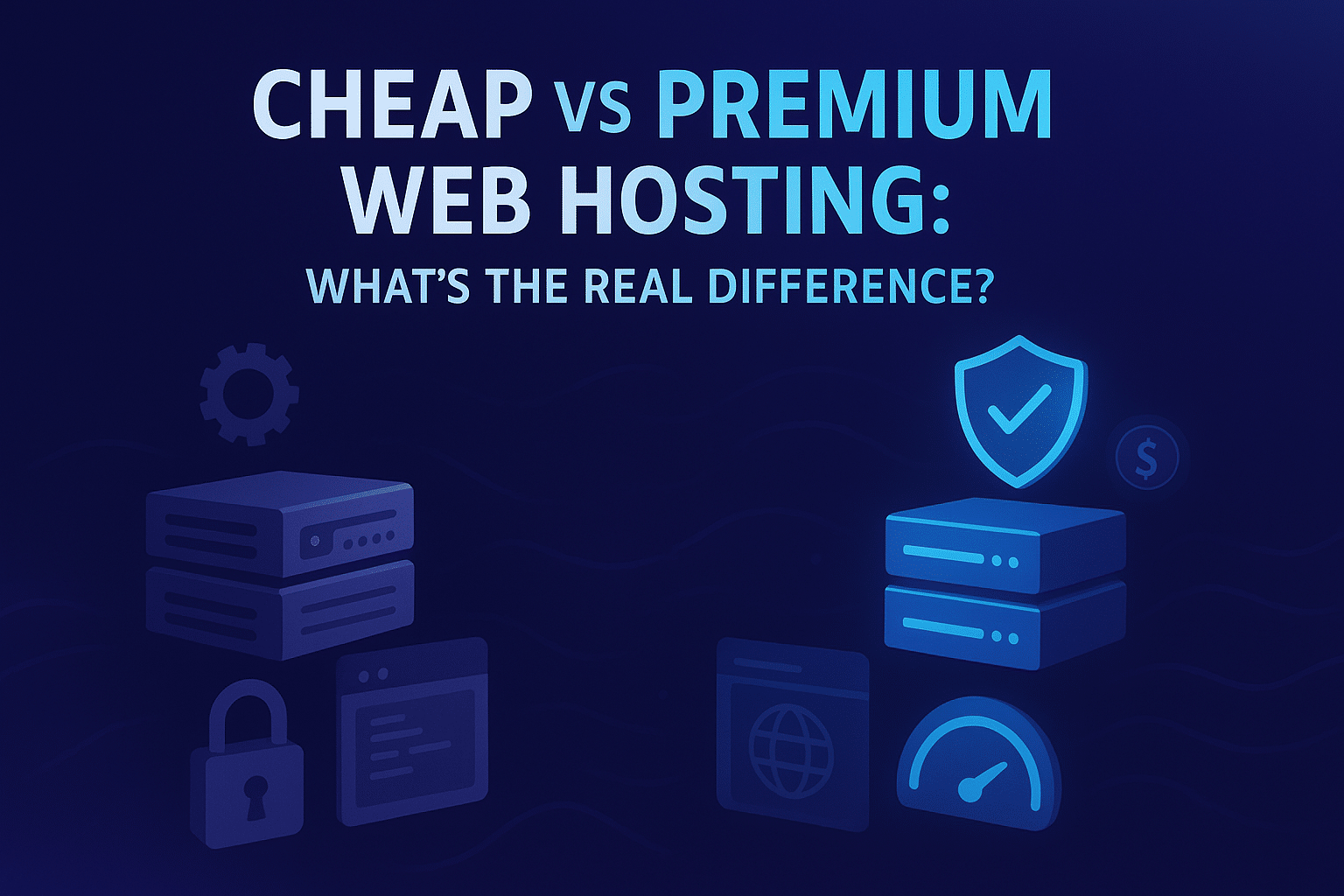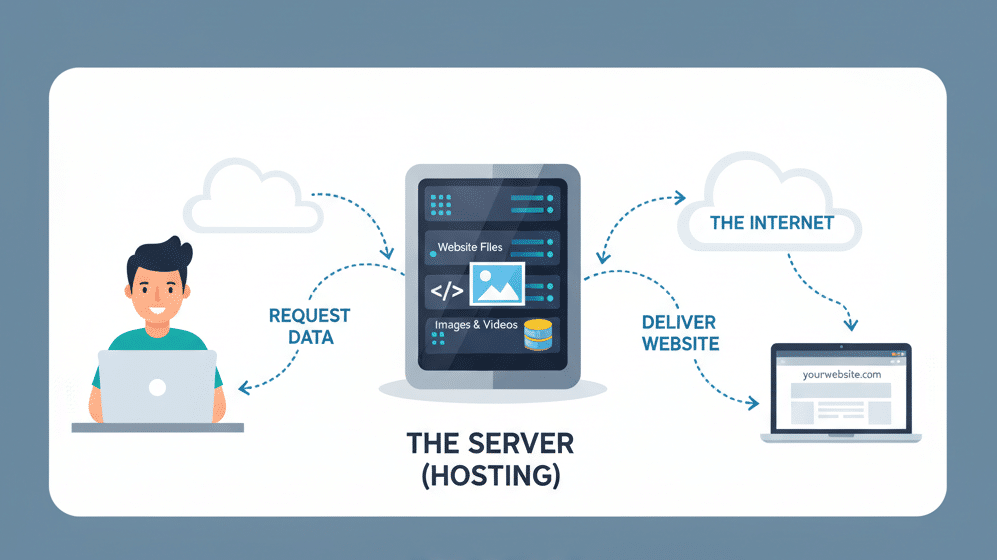Beyond Firewalls: How Machine Learning Is Redefining Hosting Security
Did you know that cybercrime is projected to cost the world an astonishing $10.5 trillion annually by 2025, according to Cybersecurity Ventures? This isn’t just a statistic; it’s a stark reminder of the escalating threats businesses face daily. In an era where every click and transaction matters, the security of your hosting environment is paramount. Traditional defenses are struggling to keep pace, but a powerful ally is emerging: Machine Learning in Hosting Security. This isn’t merely an upgrade; it’s a paradigm shift towards smarter, more proactive threat detection and defense, fundamentally changing how we protect our digital infrastructure and ensure uninterrupted online marketing efforts.
The Evolving Threat Landscape
The digital environment has never been more hostile. Cybercriminals are no longer isolated hackers working from basements—they are organized, well-funded, and equipped with sophisticated tools. Threats now include:
-
Zero-day vulnerabilities: Exploits discovered before developers have a chance to patch them.
-
Automated bot attacks: Scripts designed to test millions of stolen credentials within seconds.
-
Ransomware campaigns: Targeting not just corporations, but also small businesses, startups, and e-commerce platforms.
-
Phishing and social engineering: Now enhanced with AI to create more convincing fake emails and websites.
Traditional firewalls and antivirus systems operate on fixed rule sets and signatures, making them reactive rather than proactive. They can only defend against threats they already know about. But what happens when the threat is new, adaptive, and evolving faster than human analysts can keep up?
This is where Machine Learning (ML) comes into play.
How Machine Learning Transforms Hosting Security
Machine Learning doesn’t replace traditional tools—it supercharges them. By analyzing vast amounts of data, ML models can detect unusual activity, learn from past incidents, and predict potential breaches before they occur.
Here are some ways ML is redefining hosting security:
1. Anomaly Detection in Real-Time
Instead of waiting for rules to trigger, ML systems monitor traffic patterns, login attempts, and file changes continuously. If an unusual spike in failed login attempts occurs at 3 AM, or if sensitive files are accessed from an unknown IP, ML raises red flags instantly.
2. Behavioral Analysis
Machine Learning doesn’t just track what happens—it learns how things normally happen. For example, if a website admin typically logs in from London during office hours, but suddenly there’s a login attempt from another continent at midnight, ML systems flag it as suspicious.
3. Adaptive Malware Defense
Malware is becoming polymorphic—it changes its code to avoid detection. Unlike traditional antivirus, ML-powered tools can analyze the behavior of code rather than just its signature, catching malicious software even if it’s never been seen before.
4. Automated Incident Response
When ML detects a potential breach, it doesn’t just alert administrators. Advanced systems can isolate infected servers, block malicious IPs, and roll back unauthorized changes automatically, reducing downtime and preventing damage.
5. Fraud Detection for Online Marketing & Transactions
For businesses relying on online sales and marketing, fraudulent clicks, fake traffic, or payment fraud can drain budgets. ML helps distinguish between genuine customers and bots, ensuring ad spend and marketing strategies aren’t wasted.
Benefits for Businesses
The integration of Machine Learning into hosting security offers a wide range of advantages:
-
Proactive Protection: Detect threats before they cause damage.
-
Reduced False Positives: Smarter algorithms minimize unnecessary alerts, saving time and resources.
-
Scalability: ML systems handle growing amounts of data as your business expands.
-
Continuous Learning: Unlike static defenses, ML improves over time as it processes new threats.
-
Business Continuity: Protects uptime, ensuring your website, applications, and online marketing efforts remain uninterrupted.
Challenges and Considerations
While ML brings immense benefits, it’s not without challenges:
-
Data Privacy Concerns: Collecting and analyzing user data for security requires strict compliance with GDPR and other regulations.
-
Cost of Implementation: Advanced ML security systems may be expensive for small businesses initially.
-
False Negatives: No system is perfect—sometimes threats may still slip through.
-
Skilled Management: Requires IT teams familiar with ML models to tune, monitor, and update them effectively.
The Future of Hosting Security with Machine Learning
We are only scratching the surface of what ML can achieve in cybersecurity. With the rise of Generative AI, hosting providers may soon use predictive intelligence to simulate attacks before they happen, patch vulnerabilities automatically, and create self-healing infrastructure.
Imagine a hosting environment where every login attempt, every file transfer, and every packet of data is continuously monitored, analyzed, and defended—not just by humans, but by intelligent systems that learn and adapt faster than hackers can innovate.
Final Thoughts
Cybersecurity is no longer optional—it’s a business necessity. For companies that rely heavily on digital presence and online marketing, the cost of downtime, data loss, or reputational damage can be catastrophic. While firewalls and antivirus software remain important, Machine Learning has emerged as the true game-changer in hosting security.
By moving beyond reactive defenses and embracing intelligent, adaptive protection, businesses can ensure not just survival in the digital era, but sustained growth and resilience against ever-evolving cyber threats.
The future of secure hosting isn’t just about stronger walls—it’s about smarter defenses. And with Machine Learning, that future is already here.







